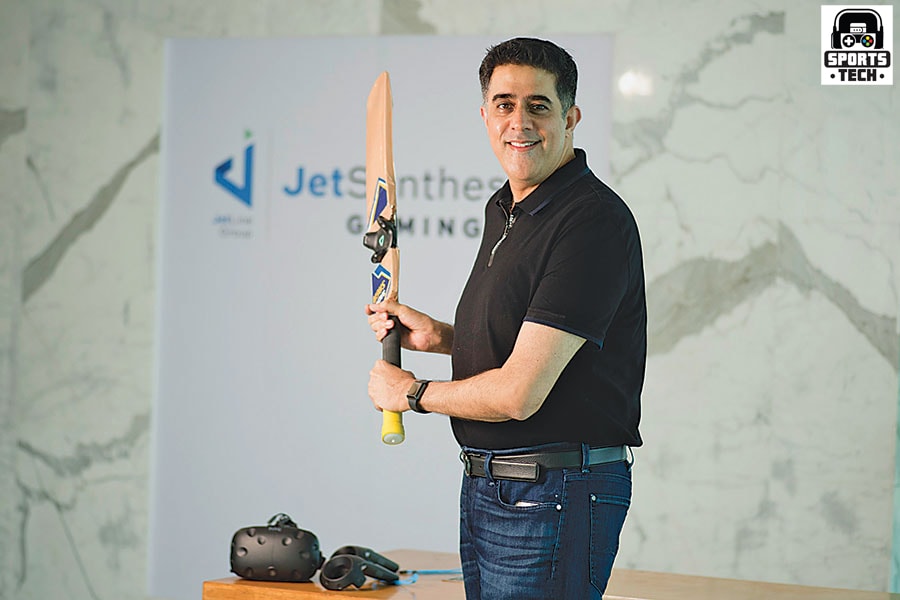Urgent need to look at esports from a different lens: JetSynthesys' Rajan Navani
For a man who is so deeply involved in promoting esports, the 'taint' of gambling hurts, and Navani explains that there needs to be a very clear understanding and bifurcation of what represents online gaming, esports, fantasy gaming and real-money gaming
 Rajan Navani, Founder, JetSynthesys
Image: Anirudha Karmakar for Forbes India
Rajan Navani, Founder, JetSynthesys
Image: Anirudha Karmakar for Forbes India
It is terrible news for Rajan Navani. Esports, which was all set to debut as an official medal sport at the 19th Asian Games in Hangzhou, China, in September, will have to wait for a while as the Games have been postponed. But what is even more awful is living with a terrible feeling that borders on disgust. Recently, an empowered group of ministers (GoM) recommended a 28 percent GST on casinos, horse racing and online gaming. In one stroke, esports—which technically falls under online gaming—gets the taint of gambling and betting as its gets clubbed with casinos and horse racing. “It really is a terrible, terrible feeling,” laments Navani, founder of JetSynthesys, a digital entertainment and technology company that has esports and gaming as a big part of its business. “It [clubbing esports with the rest] doesn’t do justice to the emotion of sports and the spirit of the sports,” he rues.
Started in 2014, JetSynthesys has aggressively expanded its esports and gaming verticals, built a library of over 300 digital games and pioneered celebrity gaming by stitching tie-ups with biggies such as cricketing legend Sachin Tendulkar, actor Salman Khan and boxing champ Floyd Mayweather. Navani has a 50 percent stake in Nodwin Gaming, one of the top esports companies in India, which has seen its revenue jump from ₹135 crore in FY21 to ₹211 crore in FY22. “The potential of esports is immense,” reckons Navani, who bought game development studio Nautilus Mobile—maker of Real Cricket—in September 2020. With over 2.5 million viewers, Real Cricket claims to be India’s largest indigenous esports game.
The Nautilus Mobile deal also put JetSynthesys on the global map. It made the company the biggest simulated cricket gaming franchise in the world, with over 100 million downloads and more than 10 million monthly users. Earlier this year, Krafton—makers of the PUBG—invested $5.4 million in Nautilus Mobile, making this Krafton’s maiden investment in an Indian digital gaming studio. JetSynthesys also owns South Asia’s biggest esports tournament organiser Skyesports.
For a man who is so deeply involved in promoting esports, the ‘taint’ of gambling hurts. What he also finds perplexing is the tendency to put all online mobile games under one bucket. Navani explains that there needs to be a very clear understanding and bifurcation of what represents online gaming, esports, fantasy gaming and real-money gaming. Video games market, he claims, is a well-established, legit industry, which is estimated to be over $190 billion. “The video gaming industry today is larger than the music and film industries,” he contends, adding that esports and video gaming are drastically different products from other forms of gaming. “The definition of esport and gaming is a little cluttered in India,” Navani says, emphasising that it’s a real sport requiring high level of skill and expertise that comes with rigorous practice and training. “You play it for the game and not for money,” he says. Money, he adds, is the reward that comes with medal, trophy and prize.
(This story appears in the 17 June, 2022 issue of Forbes India. To visit our Archives, click here.)



















